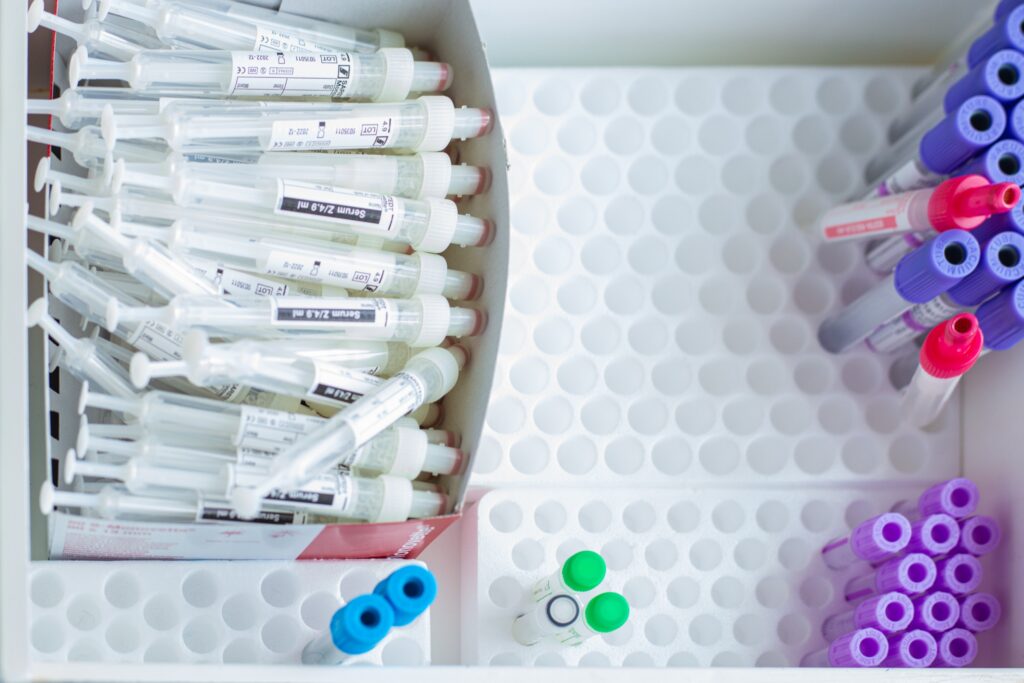Navigating the complexities of clinical trial logistics in Australia presents a unique set of challenges. From ensuring the integrity of trial materials to adhering to strict Good Manufacturing Practice (GMP) requirements, there’s a lot on the line when it comes to clinical trials.
These trials are pivotal in the development of new medicines and treatments, making the stakes exceptionally high. Ensuring compliance with GMP guidelines not only guarantees the quality and safety of clinical trial materials but also plays a critical role in the successful outcome of the trials.
In this post, we’ll take a closer look at the GMP requirements that are specific to clinical trial materials and explore the importance of seamless clinical trial logistics in the Australian context.
Understanding GMP in Clinical Trials
Good Manufacturing Practice (GMP) is a crucial aspect of clinical trial management solutions, especially within Australia where regulatory standards are stringent. Some key components of GMP in clinical trials include:
- Quality Control and Assurance: Ensuring that the manufacturing process is strictly monitored and controlled to prevent contamination, errors, and deviations.
- Documentation and Record Keeping: Maintaining comprehensive and accurate records of all stages of the clinical trial process to ensure traceability and accountability.
- Staff Training and Competency: Providing ongoing training and assessment for all staff involved in the clinical trial to ensure they are competent and understand GMP requirements.
- Facility and Equipment Maintenance: Regular inspection, maintenance, and calibration of all facilities and equipment used in the manufacturing and testing of clinical trial materials.
- Handling of Materials: Strict protocols for the storage, handling, and disposal of materials to prevent cross-contamination and ensure the integrity of the trial materials.
Integrating these GMP principles into clinical trial management solutions forms the backbone of successful clinical research, particularly in Australia where adherence to these practices is closely monitored by regulatory bodies.
The Nuts and Bolts of GMP for Clinical Trial Material
For those new to the domain of clinical trial material and GMP, it helps to understand the foundational elements:
- Risk Management: Implementing a comprehensive risk management plan to identify, assess, and mitigate potential risks associated with clinical trial materials and processes.
- Supplier Validation: Carefully selecting and validating suppliers and manufacturers to ensure that materials meet predefined quality and GMP standards.
- Product Testing: Conducting rigorous testing of clinical trial materials at various stages of development to guarantee that they meet the necessary specifications and standards.
- Change Control: Establishing a formal change control system to manage any changes in the process or materials, ensuring that all changes are documented, reviewed, and approved before implementation.
- Complaint and Recall Procedures: Developing procedures for handling complaints related to clinical trial materials and for recalling materials, if necessary, to protect participant safety and maintain trial integrity.
- Auditing and Inspection: Regular internal and external audits and inspections to ensure ongoing compliance with GMP standards and to identify areas for improvement.
Exemplary Compliance with GMP Guidelines
Adhering to GMP can be a complex endeavour, but it’s a challenge that must be met head-on by pharmaceutical professionals and clinical researchers. Here are some key guidelines that should be pursued diligently:
- Thorough Documentation: Meticulously document all processes, procedures, and results. This includes keeping detailed records of every batch of clinical trial materials produced, along with their testing outcomes and any deviations from standard protocols.
- Continuous Training: Ensure ongoing education and training for all personnel involved in the production and handling of clinical trial materials. This is essential to keep staff updated on the latest GMP guidelines and industry best practices.
- Quality Checks at Every Stage: Implement multiple layers of quality control checks throughout the production and distribution phases to detect any issues early and address them promptly.
- Robust Quality Management System (QMS): Develop and maintain a QMS that encompasses all aspects of GMP, including process validation, quality control, and quality assurance.
- Effective Communication Channels: Establish clear and effective communication channels among team members, suppliers, and regulatory bodies to facilitate smooth operations and quick responses to any GMP-related issues.
- Regulatory Compliance: Stay informed about the latest regulations and guidelines from relevant bodies, such as the Therapeutic Goods Administration (TGA) in Australia, and ensure that all GMP practices are in full compliance.
- Participant Safety First: Prioritise participant safety by ensuring that all clinical trial materials are produced, stored, and handled in a manner that upholds the highest quality and safety standards.
Addressing Common Challenges in GMP Compliance
Compliance with GMP is not without its hurdles, particularly for leaner and younger biotech companies. Common challenges include:
- Resource Limitations: Smaller companies often have limited resources, which can make it challenging to implement and maintain the comprehensive systems and processes required for GMP compliance.
- Regulatory Complexity: Navigating the regulatory landscape, especially for companies new to the market, can be daunting due to the complexity and variability of GMP standards both domestically and internationally.
- Supply Chain Management: Ensuring the quality and reliability of the entire supply chain, from raw materials to final product distribution, requires significant oversight and can be particularly challenging in a global market.
- Technology Integration: Implementing the latest technology solutions for process automation, data management, and quality control can be cost-prohibitive for smaller companies but is crucial for efficient GMP compliance.
- Staff Training and Retention: Continuously training staff to stay updated on GMP practices and retaining skilled personnel in a competitive job market pose ongoing challenges.
- Quality Control Consistency: Maintaining consistency in quality control across different batches and product lines is critical for GMP compliance but can be difficult to achieve without robust systems and processes in place.
- Adaptability to Regulatory Changes: Regulatory requirements can change, requiring companies to be nimble and adapt their GMP compliance strategies swiftly to remain in compliance.
- Auditing and Inspection Readiness: Being prepared for unexpected audits and inspections requires a culture of compliance and transparency, which can be difficult to maintain amidst the pressures of product development timelines.
Best Practices for Meeting GMP Requirements
Thankfully, best practices have been identified to help companies maneuver through the GMP labyrinth. These include:
- Develop a Proactive Compliance Culture: Cultivate an organisational culture that prioritises adherence to GMP requirements. This involves fostering a sense of responsibility and quality awareness among all team members.
- Leverage Technology for Compliance: Implement advanced software and technologies designed to streamline GMP processes. This can include electronic batch records, digital quality management systems, and automated monitoring tools.
- Engage in Continuous Improvement: Regularly review and refine GMP-related processes and systems. Consider feedback from audits, inspections, and internal reviews as opportunities for improvement rather than criticism.
- Strengthen Supplier Relationships: Build strong partnerships with suppliers and manufacturers. This involves conducting thorough supplier audits and establishing clear expectations for GMP compliance.
- Conduct Regular Training: Provide ongoing training and development programs for all employees involved in the production, testing, and distribution of clinical trial materials. This ensures that staff are up to date with the latest GMP standards and practices.
- Ensure Robust Documentation: Maintain comprehensive and accurate documentation for all GMP activities. This should cover the complete lifecycle of clinical trial materials, from initial procurement to final distribution.
- Prepare for Audits and Inspections: Conduct regular internal audits and prepare meticulously for external inspections and audits by regulatory bodies like the Therapeutic Goods Administration (TGA) in Australia.
- Manage Risks Effectively: Implement a robust risk management framework that identifies potential risks to GMP compliance and outlines strategies to mitigate these risks.
- Prioritise Quality in Decision Making: Make quality a key consideration in all decisions relating to the production and handling of clinical trial materials. This includes evaluating the impact of any changes on GMP compliance.
- Monitor Regulatory Developments: Stay informed about changes in GMP regulations and guidelines, both domestically and internationally, to ensure ongoing compliance.
Conclusion: GMP – The Bedrock of Clinical Research
Ensuring adherence to Good Manufacturing Practice (GMP) requirements is the very foundation that guarantees the integrity and reliability of clinical trials. In an Australian context, where the standards are rigorously enforced by the Therapeutic Goods Administration (TGA), GMP compliance is paramount.
It instils confidence within patients, healthcare providers, and investors, about the quality and safety of clinical trial materials. This robust framework ensures that every phase of the clinical trial is conducted under the highest standards.
Ultimately, GMP serves as the bedrock of clinical research, ensuring that the outcomes are credible and reproducible.
About Cryosite
Cryosite is a highly reputable organisation, renowned for its comprehensive bio-pharmaceutical services. These services encompass clinical trials, biological sample storage,cord blood banking, drug return and destruction, cell banks, cord storage, and much more! Cryosite is committed to maintaining the highest standards of quality and safety, ensuring that client needs are met with precision and efficiency. Our dedicated team of professionals leverages advanced technologies, such as IRT systems, to deliver unparalleled service. As a trusted partner in clinical trial supply chain management, Cryosite is at the forefront of innovation, consistently seeking ways to enhance and streamline processes for utmost client satisfaction. Contact us today to learn more about how Cryosite can support your clinical trial needs.


